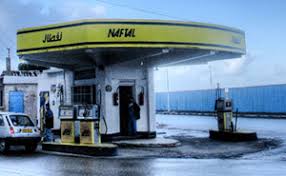
Algeria’s presidency has firmly denied reports that the state-owned company Naftal would lose its monopoly on lubricant imports, reaffirming a model that has kept the sector tightly controlled for decades.
The statement, issued on Wednesday, underscores the government’s insistence on continuity amid growing scrutiny over the country’s locked economic structure.
According to the General Directorate of Communication of the Presidency, “after verification with the competent authority,” Naftal remains “the only official and exclusive operator for the importation of engine oils and tires.” The clarification follows an article in the daily newspaper El Watan suggesting that the monopoly might be lifted.
The statement references the Council of Ministers’ decision of May 7, 2024, in which President Abdelmadjid Tebboune instructed Naftal to ensure domestic production of lubricants, expand coverage, manage imports of products not manufactured locally, and invest in technologies required for production.
While the government presents this as a strategic economic measure, critics argue that it reflects a rigid model that limits competition and market openness. Unlike neighboring countries that have diversified suppliers and encouraged private-sector participation to improve quality and pricing, Algeria remains anchored in a state monopoly, concentrating responsibilities and constraining innovation.
Observers note that the swift presidential response to correct the press article highlights the sensitivity surrounding state-owned enterprises. In a climate of economic and social tension, maintaining absolute control over Naftal is seen less as a purely strategic decision and more as a political effort to protect a key pillar of the state’s rent-based system.
The broader implication is that Algeria’s lubricants sector, like many parts of the economy, continues to be tightly managed by the state, limiting opportunities for modernization or private investment. While the official line stresses stability and continuity, analysts warn that such entrenched monopolies could hinder competitiveness, transparency, and long-term economic growth.
By keeping Naftal at the center of the market, Algeria signals its commitment to a familiar model, even as regional peers experiment with liberalization and innovation. For consumers and potential private operators, the government’s stance leaves little room for change in the immediate future.



